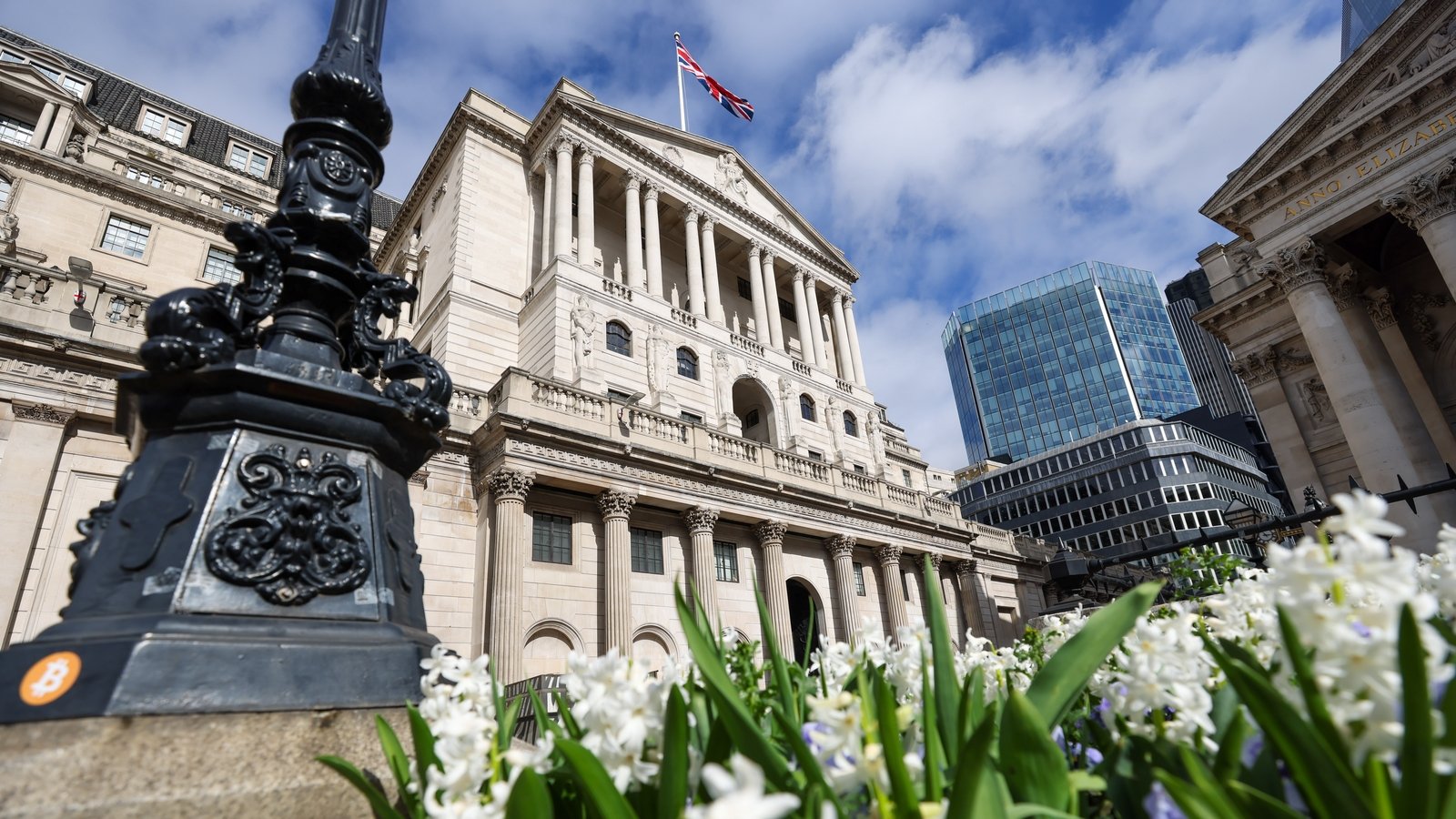Bank of England keeps rates at 5.25% ahead of UK election

The Bank of England kept its main interest rate unchanged at a 16-year high of 5.25% at its last meeting before July 4’s UK election, but the prospect of a future rate cut moved closer as some policymakers said their thinking was now “finely balanced”.
The Bank of England’s Monetary Policy Committee voted 7-2 today to keep rates on hold, in line with expectations in a Reuters poll of economists.
Deputy Governor Dave Ramsden and external MPC member Swati Dhingra were the only policymakers to support a cut to 5%.
Bank of England Governor Andrew Bailey said it was “good news” that official figures yesterday had shown inflation was back at its 2% target, but added that it was too soon to cut rates.
“We need to be sure that inflation will stay low and that’s why we’ve decided to hold rates at 5.25% for now,” he said.
Last month, Bailey said he was “optimistic” that data was moving in the right direction for a rate cut.
Sterling fell against the US dollar after the announcement and British government bond yields dropped as investors saw a greater chance of an early rate cut.
Markets priced in a 55% chance of a rate cut on August 1 after the Bank of England’s next meeting, up from around 30% before today’s decision.
The Bank of England vote follows a long-trailed decision by the European Central Bank earlier this month to start cutting its interest rates and the Swiss National Bank’s second rate cut of 2024 earlier today.
Meanwhile, Norway’s central bank held its policy interest rate at a 16-year high of 4.5% today, as unanimously expected by analysts, and postponed the prospect of a rate cut until 2025 from a previous plan to reduce borrowing costs in September this year.
The Federal Reserve is expected to start lowering US rates in September, according to a Reuters poll, while economists forecast the Bank of England will begin a month earlier.
“We still expect the MPC to cut rates in August but this is not a done deal,” said Alpesh Paleja, interim deputy chief economist at the Confederation of British Industry.
Any cut is likely to be too late for Prime Minister Rishi Sunak, whose Conservative Party is around 20 points behind the opposition Labour Party in the pre-election polls.
While Sunak has sought credit for the fall in inflation since he took office in October 2022, when it was at a 41-year high of 11.1%, Labour blames high mortgage rates on economic mismanagement by the Conservatives’ previous leader, Liz Truss.
The Bank of England said the upcoming election had no impact on its decision.
The Bank of England expects inflation to rise above target as the effect of past energy price falls drops out of annual inflation data, and repeated its May forecast for inflation to be around 2.5% in the second half of 2024.
But in a sign the central bank may be getting closer to cutting rates, the bank’s policy minutes said the decision to keep rates on hold had been “finely balanced” for some MPC members.
The Bank of England said indicators of inflation persistence – chiefly wage growth and services inflation – had moderated since its May meeting but remained high.
The MPC members whose views on a rate cut were “finely balanced” placed less weight on higher-than-expected May services inflation than others.
They viewed the higher-than-expected reading as reflecting a nearly 10% rise in Britain’s minimum wage and annual indexed rises in prices that reflected past inflation – factors they did not expect to have as big an upward effect on future inflation.
“The fact that the decision was described as ‘finely balanced’ for some of those voting to hold is a signal that an August rate cut is firmly in play,” said Peter Arnold, chief economist at accountants EY UK.
But for other MPC members, the high services price inflation and the fact that wage growth had been faster than standard economic models had predicted reinforced their view that it was too soon to cut rates.
Services price inflation has fallen less than the Bank of England expected at its May meeting – only declining to 5.7% rather than 5.3% – and private-sector wage growth is almost twice the rate the bank judges as compatible with 2% inflation.
Since the start of the election campaign the Bank of England has been in a self-imposed period of silence, cancelling public events.
Before that, Bank of England Chief Economist Huw Pill described an excessive focus on a June rate cut as “ill advised” but both he and Deputy Governor Ben Broadbent – who steps down at the end of this month – said a rate cut over the summer was possible.
The Bank of England began to raise rates in December 2021, earlier than other major central banks, and they reached their current peak in August 2023.
Related
Why investing in women is a vital next step for…
Get Nadine White's Race Report newsletter for a fresh perspective on the week's newsGet our free newsletter from The Independent's Race CorrespondentGet our fre
Business secretary signals major shift on electric car policy to…
In a determined effort to retain Nissan’s manufacturing presence in Britain, Business Secretary Jonathan Reynolds has vowed to implement “substantial c
Joint Statement: Business Secretary and Fujitsu Services Ltd
Business and Trade Secretary Jonathan Reynolds today (Friday 7 March) met chiefs for Fujitsu in Tokyo to begin talks over the cost of redress for victims of th
UK foreign secretary backs multilateral defence funding for Europe
UK foreign secretary David Lammy has said that a new multilateral fund will be needed to secure Europe’s defence as he confirmed that Britain is “open to”













